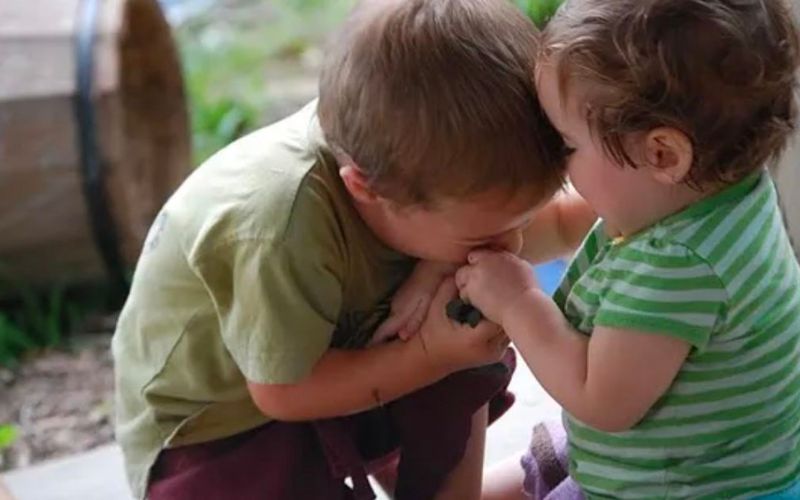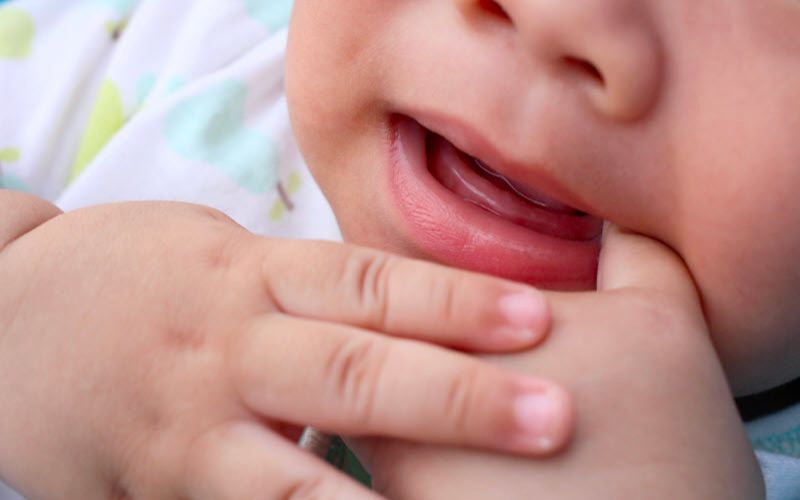It’s common for some children to develop a biting habit at a young age, especially when they’re feeling unhappy. This behavior can become more dangerous as they start teething, leaving deep bite marks and even causing bleeding. Let’s explore the reasons behind this behavior and effective strategies to address it in this article.
1 Understanding the Reasons for Biting in Different Stages of Development
Stage 1: 4 – 8 Months Old
During the teething phase, which typically occurs between 4 and 8 months of age, babies tend to bite more frequently. This is because the emerging teeth and gums can cause itching and discomfort, which they try to alleviate by biting.
Additionally, at this stage, babies’ tongues and mouths are highly sensitive, leading to increased biting, licking, and sucking behaviors. As a result, it can be challenging for parents to prevent biting during this period.
To reduce the frequency of biting, parents can try redirecting their child’s attention by offering teething toys or their favorite playthings designed for chewing.
 Understanding the Reasons for Biting
Understanding the Reasons for Biting
Stage 2: 1.5 – 3 Years Old
At this stage, biting is often a result of inappropriate emotional expression. Children may bite when they’re feeling unhappy or frustrated, or as a way to communicate their desires if their mother cannot understand them.
It’s important to note that children at this age may not realize that biting is wrong, nor do they know how to express their emotions effectively when angry. Therefore, it’s crucial for parents to step in and correct this bad habit as early as possible.
Stage 3: After 3 Years Old
Some children may naturally reduce or stop biting others after they turn three. By this age, they have usually developed sufficient language skills to express their dissatisfaction or negative emotions verbally.
However, if a child continues to bite others after the age of three, it may indicate that the parenting methods employed during the earlier stages were not effective.
2 What Should Parents Do If Their Child Bites?
If your child exhibits a biting behavior, consider the following strategies:
- Immediately stop the behavior and explain that biting is not acceptable.
- Check for injuries and seek medical attention if the bite is deep or bleeding.
- Establish clear family rules and implement a system of rewards and consequences to discourage biting.
- Seek professional help if the biting persists or becomes more frequent. A child psychologist can help identify the underlying causes and provide tailored solutions.
 Strategies for Parents
Strategies for Parents
Understanding the reasons behind children’s biting behavior and knowing how to respond are crucial for parents. We hope that the information provided will help you better care for your child and address any biting issues effectively.
Source: “Báo Phụ nữ” Magazine
You may also be interested in:
































